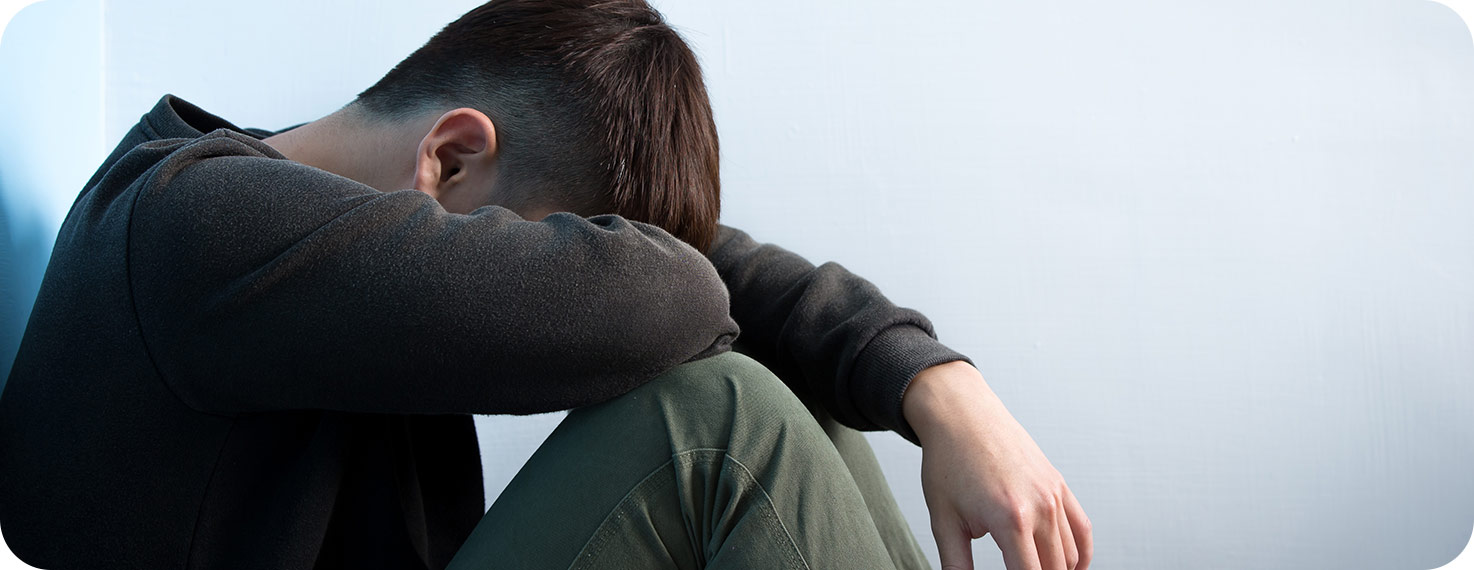
Home » Benzo Detox: How to Withdraw Safely
Benzo Detox: How to Withdraw Safely
- Authored by Joe Gilmore
- Clinically Reviewed by Jenni Busse
- Last Updated 04/02/2024
- By Joe Gilmore
- Reviewed by Jenni Busse
- 04/02/2024

Trying to do a benzo detox on your own can be extremely risky, and even deadly in many cases.
Benzo withdrawal symptoms can include intense anxiety, hallucinations, tremors, and even seizures. Trying to endure these symptoms at home increases the risk that you will encounter severe medical emergencies requiring a clinical and professional environment. However, by then, it may be difficult to get to a hospital in time.
Having a medical professional or licensed detox facility, like Gratitude Lodge, provide 24/7 supervision offers a safe and more comfortable experience during benzo withdrawal treatment as they can administer the appropriate medication and care as you go through the benzo detox process.
WHAT IS BENZO DETOX?
Benzo detox is the first step of the benzo withdrawal treatment process. Clients will be medically monitored under 24/7 supervision as they go through benzo withdrawal symptoms.
Because some withdrawal symptoms can cause permanent damage to your brain or even death, it’s important that you seek out medical monitoring and supervision during this time. The duration of these symptoms depends on individual factors, such as:
- How long Benzodiazepines were abused
- Intake method
- And your medical history
Here at Gratitude Lodge, we offer inpatient benzodiazepine detox programs, meaning you’d stay in our luxurious, welcoming rooms and have access to professionals during your recovery. Our local partners offer outpatient detox, which is available to those who have a less severe addiction and want to continue their work or school during their detox and follow-up treatment. Though going through detox sounds uncomfortable, it’s required to get you on the path to recovery.
If you or a loved one are planning to get sober from benzos, don’t do it alone. Our team of experienced medical staff can provide a safe and comfortable place to detox without worry.
Call us today at 800-994-2184 to get quick admission to our safe and comfortable detox program.

WHAT ARE THE SYMPTOMS OF BENZO WITHDRAWAL?
Removing benzos from your system is the first step to recovery. Detoxing in a safe, professionally staffed environment is important because you may have become dependent on benzos, which can affect your brain’s chemical makeup. In severe dependency cases, suddenly stopping the intake of benzos (benzodiazepines) could lead to delirium, a lost sense of self, and psychosis.
After detoxing from benzos, your brain takes time to recalibrate in the absence of the substance. These symptoms may present as you transition from benzo detox into ongoing inpatient or outpatient treatment: difficulty focusing, restlessness, detachment, panic attacks, depression, anxiety, mood swings, hallucinations, delirium, suicidal thoughts.
These are the most reported benzodiazepine withdrawal symptoms:
- High blood pressure
- Increased heart rate
- Sweating
- Diarrhea
- Nausea
- Vomiting
- Hyperventilation
- Fever
- Insomnia
- Heart palpitations
- Tremors
- Headaches
- Hypersensitivity
- Hypertension
- Elevated body temperature
- Blurred vision
- Altered sense of smell
- Muscle aches
- Muscle spasms
- Appetite loss
- Numb fingers
- Tingling in arms and legs
- Cramps
- Grand mal seizures
HOW LONG DOES BENZO DETOX Last?
The onset and duration of benzo detox symptoms depends on the type of benzodiazepine.
With short-acting benzos like midazolam and triazolam, the substances leaves the body more rapidly, triggering withdrawal symptoms within 8 to 12 hours of the last use. The onset of withdrawal symptoms with intermediate-acting benzos like Xanax or long-acting benzos like clonazepam may be delayed by one or two days.
Many other factors influence the duration of benzo withdrawal, including:
- Duration of benzo abuse
- Benzo dosage
- Genetics
- Body type
- Body composition
- Previous anxiety disorders
- The medications used in your personalized detox treatment plan
The benzo withdrawal symptoms that are managed with a medical detox for benzodiazepines occur as follows:
- Short-acting benzos: Withdrawal symptoms typically peak on day 2 of detox, improving on days 4 and 5.
- Long-acting benzos: Acute withdrawal symptoms typically persist for 1 to 2 weeks more with longer-acting benzodiazepines.
In the event of protracted benzo withdrawal, symptoms may persist for up to a year.
How To Safely Detox from Benzos
If you are trying to know if you can detox from benzos at home, quitting benzos cold turkey at home is dangerous and can even be fatal in some circumstances. Without medical supervision, symptoms like seizures and suicidal behavior can be deadly.
According to DSM-5-TR (fifth revised edition of Diagnostic and Statistical Manual of Mental Disorders, medical detox “reduces the discomfort of withdrawal, which in turn reduces the chances of relapsing into addiction.”
Aside from potentially lethal medical complications, detoxing at home also increases the risk of relapse during the early challenging phase of detox. Without emotional support, many people detoxing from benzos at home take the medication simply to stave off withdrawal symptoms.
To truly learn how to safely detox from benzos, it is vital to seek out the help of a professional treatment program.
What Happens After Benzo Detox?
After you receive benzo detox for physical symptoms, you’ll take steps in recovery for mental withdrawal symptoms. Structured activities, group therapy, and individual counseling are built into your day when you stay at a residential addiction treatment facility such as Gratitude Lodge. After that, you’ll be able to transition to outpatient care, where you can stay in your own home, attend work or school, and attend therapy in the daytime or evening.
IS BENZO DETOX COVERED BY INSURANCE?
We accept most PPO insurances at Gratitude Lodge for our Benzo Detox program, whether you’re staying with us for as little as 7 days or more than 90 days. We accept BlueCross BlueShield, Cigna, Aetna, and many more. As with any insurance, the cost depends on your insurance policy deductible and your policy co-pay. Inpatient and outpatient facility costs may vary.
Some insurance providers want you to contribute to the cost. Most treatment facilities can help determine if your insurance is eligible. We’re happy to see if your insurance covers treatment and detox for you or your loved ones. When you choose Gratitude Lodge, you’re choosing to invest in a new you.
WHAT IS THE BEST BENZO WITHDRAWAL TREATMENT?
The best and safest treatment for benzo withdrawal is a medically supervised detox, followed by inpatient treatment for addiction if needed. A supervised detox helps smooth the transition from using to clean with 24/7 care and medication-assisted treatment. Detoxing from benzos at home can be not only extremely painful but also dangerous and potentially life-threatening.

Treatment for Benzo Withdrawal:
A Benzo Detox Program
Whether you require inpatient or outpatient treatment for addiction to benzos, you should consider engaging with a supervised medical detox program rather than attempting to detox from benzos at home.
Consult your prescribing physician before you discontinue the use of any type of benzo, even when you have been using benzos short-term and as directed.
An effective detox typically involves a gradually tapered withdrawal. Dosage will be incrementally reduced to decrease the intensity of benzo withdrawal. Substitute medications may be beneficial for mitigating withdrawal symptoms during detox.
There are three phases to benzo withdrawal. Most people experience the first two phases of benzo withdrawal, although not everyone experiences the third and more protracted phase of detoxification.
- Immediate benzo withdrawal: Shortly after discontinuing the use of benzos, many people experience rebound symptoms. Rebound symptoms are the symptoms that the medication was prescribed to treat. The first withdrawal symptoms present within a few hours of the last dose. During this phase of detox, drug tapering and drug substitution may alleviate rebound symptoms.
- Acute benzo withdrawal: Acute withdrawal symptoms may persist for the first week of detox. During this acute phase of benzo withdrawal, medical monitoring reduces the risk of relapse and streamline detox.
- Protracted benzo withdrawal: Research indicates that 25% of those detoxing from benzos experiences protracted benzo withdrawal. Symptoms include anxiety, depression, insomnia, problems with focus, reduced sex drive, and severe mood swings.
BENZO WITHDRAWAL TIMELINE
The benzo withdrawal timeline will vary from person to person. In most cases, a successful and sustainable benzo detox involves a gradual tapering of dosage over the course of a few weeks.
A typical timeline may unfold as follows:
1-4 DAYS
The first signs of benzo withdrawal – insomnia and anxiety – may present within a few hours of the last use. Rebound symptoms of insomnia and anxiety will peak after 2 days of detox. Other symptoms that usually peak during this time are increased breathing and heart rate, nausea, and sweating. The first signs of withdrawal from long-acting benzodiazepines will begin after 2 days, peaking after a week or so.
10-14 DAYS
Benzo withdrawal symptoms typically linger for between 10 and 14 days before fading completely. The withdrawal symptoms associated with long-acting benzodiazepines start to peak during this time, fading within 3 to 4 weeks from discontinuing use.
15+ DAYS
Those who are heavily physically dependent on benzos may experience PAWS (post-acute withdrawal syndrome). PAWS involves withdrawal symptoms that persist for many months after quitting benzos. A tapered reduction in dosage can help mitigate PAWS.
Benzo Detox Medications
During benzo detox withdrawal, symptoms can often become painful or difficult to manage. To help individuals navigate benzo withdrawal safely and more comfortably, there are medications available to assist your transition from addiction to sobriety.
Also known as Medication-Assisted Treatment (MAT), these drugs can be prescribed and administered by a medical professional in a clinical detox facility or benzo rehab. Some of the drugs commonly used to help treat benzo detox symptoms include:
Other benzodiazepines: You may be prescribed other benzos with lower dosages so that way you can slowly come off the drug without experiencing intense withdrawal symptoms or mental disorders. The benzodiazepines used during detox may include Valium and Klonopin.
Anticonvulsants: To prevent seizures that can occur during detox, anticonvulsants like carbamazepine or valproic acid may be used.
Beta-blockers: Beta-blocking medications like propranolol are often used to help manage benzo detox symptoms like anxiety, increased heart rate, and tremors.
Clonidine: Also known as an alpha-2 adrenergic agonist, clonidine may be used to manage benzo detox symptoms like high blood pressure and ease any agitation.
Gabapentin or Pregabalin: These medications can help alleviate seizures, anxiety, insomnia, and nerve pain.
Buspirone: Buspirone is prescribed for those with a history of substance abuse and a diagnosis of GAD (generalized anxiety disorder). This medication does not trigger physical dependence and may help alleviate the emotional aspect of benzo withdrawal.
Flumazenil: Flumazenil is primarily used for the treatment of benzo overdoses, but may also reduce withdrawal symptoms of longer-acting benzos. The medication blocks the effects of benzodiazepines, relieving withdrawal symptoms by attaching to the same receptors in the brain as benzos.
In addition to these medications, a tapering-off method is also often used instead of a cold-turkey detox to prevent the body from going into shock from lack of the drug. This can help prevent more dangerous symptoms from manifesting like seizures, heart problems, etc. This approach has been shown in clinical trials to be an effective way to help individuals with more severe physical benzo dependences to wean off the drug safely.
Don’t Let Addiction Control You
LET US HELP YOU END BENZODIAZEPINE ADDICTION
Gratitude Lodge's Benzo Detox Orange County
At Gratitude Lodge, we can help you lean how to safely detox from benzos at our Orange County benzo withdrawal treatment program. So, if you are searching for treatment for benzo withdrawal, our team is here to help.
Along with a benzodiazepine detox, we offer a full suite of detox programs for all types of addictive substances.
MAT (medication-assisted treatment) can streamline the detox process for both alcohol and opioids. We specialize in the treatment of alcohol use disorder and opioid use disorder, with our programs beginning with a supervised medical detox. Whether you are addicted to alcohol, prescription opioid painkillers, heroin, or fentanyl, detox as safely and comfortably as possible at Gratitude Lodge.
Our holistic and evidence-based interventions include medication-assisted treatment, group, and individual counseling, psychotherapy (CBT or DBT), family therapy, and holistic therapies.
After completing your treatment program, you can transition to less intensive care or sober living in Southern California. We provide an aftercare plan with coping techniques and relapse-prevention strategies to support your ongoing recovery. Contact our admissions at 800-994-2184 to take the first step toward recovery.
Our Partners
WE ACCEPT MOST PPO INSURANCE
Drug and alcohol rehab should be accessible to everyone. At Gratitude Lodge,
we work with most insurance plans to cover the costs of treatment.
Benzo Detox FAQs
Benzo withdrawal can be challenging and uncomfortable, and the symptoms can vary depending on factors such as the duration and dosage of use, the type of benzodiazepine taken, and individual differences. Some common symptoms of benzodiazepine withdrawal include:
- Anxiety: This is a common withdrawal symptom that can range from mild to severe.
- Insomnia: Difficulty falling or staying asleep is common during benzo withdrawal.
- Irritability and agitation: Mood changes, irritability, agitation, and aggression may occur during benzo detox.
- Muscle tension and pain: Benzo withdrawal can trigger muscle tension, pain, and cramps.
- Nausea and vomiting: Some people may experience gastrointestinal symptoms like nausea and vomiting during withdrawal.
- Sweating: Profuse sweating is another common symptom of benzo withdrawal.
- Headaches: Headaches and migraines occur frequently during the benzo withdrawal process.
- Seizures: In severe cases, benzodiazepine withdrawal can cause life-threatening seizure.
Not everyone will experience all withdrawal symptoms during detox.
The duration of benzodiazepine withdrawal symptoms can vary depending on factors such as the duration and dosage of use, the type of benzodiazepine taken, and individual differences. However, in general, withdrawal symptoms can last anywhere from a few weeks to several months.
The acute phase of benzo withdrawal typically lasts from 1 to 4 weeks. The most severe withdrawal symptoms manifest during this month. This initial phase is followed by a prolonged or post-acute withdrawal phase, which may last for several months or more. During this phase, some symptoms may continue, although they are typically milder in presentation. The duration of benzo withdrawal can vary significantly from person to person. Some people may have a relatively mild withdrawal experience, while others might have a more prolonged and challenging experience. The length of time it takes to completely recover from benzodiazepine detox can also vary depending on the individual and their specific circumstances.
Yes, benzodiazepines typically need to be tapered off gradually to avoid withdrawal symptoms and other potential risks associated with abrupt discontinuation. When benzodiazepines are used regularly for a period of time, the brain may become accustomed to the medication and can undergo changes that make it difficult to stop using the medication without experiencing withdrawal symptoms. Withdrawal symptoms may include anxiety, insomnia, irritability, muscle cramps, tremors, and seizures. To minimize the risk of withdrawal symptoms and other potential risks associated with benzodiazepine detox, it is generally recommended that these medications be tapered off gradually under the supervision of a healthcare professional. The tapering process involves reducing the dosage of the medication over time until it can be safely discontinued without causing withdrawal symptoms or other complications. The specific tapering schedule will depend on the individual’s needs and the type of benzo and should be developed in consultation with a healthcare professional.
Niacin, also known as vitamin B3, is not typically considered a primary treatment for benzodiazepine withdrawal. While niacin may have some potential benefits for certain health conditions, there is limited evidence to support its use specifically for benzo withdrawal. Niacin is primarily used to support healthy skin, boost brain function, reduce inflammation, and improve heart health, among other benefits. Benzodiazepine withdrawal can be a complicated and potentially dangerous process, and it is important to seek medical guidance and support from a healthcare professional with experience in managing this type of drug withdrawal.

















